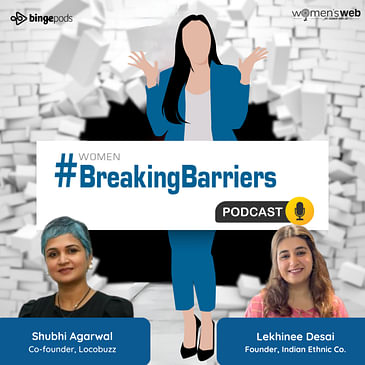An accidental entrepreneur, Lekhinee Desai has worked professionally and actually launched her entrepreneurial venture to celebrate her mother's skills and interests. Catch our host Shubhi Agarwal in conversation with this fascinating leader who has truly broken barriers.


